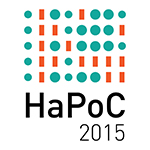In recent years a common trend characterized by the adoption of computational text mining methods in the study of digital sources emerged in digital humanities, often in opposition to traditional-hermeneutic approaches. In our paper, we intend to show how text mining methods will always need a strong support from the humanist. In our opinion, humanist research involving computational techniques should be thought of as a three steps process: from close reading (selection of a specific case study, initial feature description) to distant reading (text mining analysis) to close reading again (evaluation of the results, interpretation, use of the results). We believe that failing to understand the importance of all the three steps is a major cause for the mistrust in text mining techniques developed around the humanities. On the other hand we think that text mining techniques are a very promising tool for the humanities and that researchers should not renounce to such approaches, but should instead experiment with advanced methods such as the ones belonging to the family of deep learning. In this sense, we believe that, especially in the field of digital humanities, exploiting complementarity between computational methods and humans will be the most advantageous research direction.
- Presentation
- Other

 PDF version
PDF version
